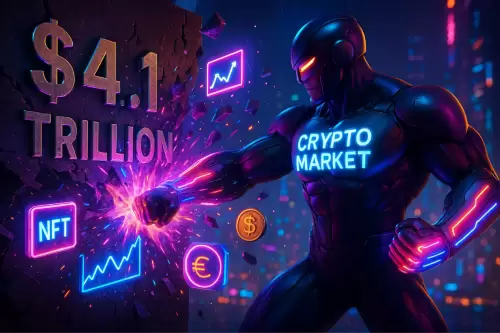 |
|
 |
|
 |
|
 |
|
 |
|
 |
|
 |
|
 |
|
 |
|
 |
|
 |
|
 |
|
 |
|
 |
|
 |
|
Cryptocurrency News Articles
Bitcoin Has Been Declared Dead 11 Times in 2025
May 17, 2025 at 01:00 am
Bitcoin's rise past $104,000 this year hasn't silenced its skeptics. In fact, 2025 has already seen 11 new "death" claims — public declarations that the cryptocurrency is doomed — surpassing last year's total.

Bitcoin's critics aren't easily deterred. Even as the cryptocurrency surges past $104,000 this year, setting a new all-time high, the murmurs of its demise haven'output: t ceased. In fact, 2025 has already seen 11 new “death” claims — public declarations that the cryptocurrency is doomed — surpassing last year’s total.
These obituaries often surge during bull runs, a pattern seen in 2017 with Ethereum and now repeating with Bitcoin. Since 2010, Bitcoin has been declared dead 430 times.
After a brief lull in 2024, pronouncements of Bitcoin's demise returned this year, beginning in January with a gloomy prediction from Nobel economist Eugene Fama, who questioned the cryptocurrency's long-term viability.
Fama, known for his contributions to asset pricing theory, expressed skepticism about Bitcoin's ability to sustain its value over time, considering the external factors that have influenced its performance.
"People say it's decentralized, but it's not really decentralized. It's been influenced heavily by macroeconomic events, like the invasion of Ukraine, which had a big impact on Bitcoin's price," Fama said.
However, despite his doubts, Fama acknowledged the significant attention that Bitcoin has garnered.
"It's amazing how much interest there is in Bitcoin. Economists are thinking about it a lot now, and that's useful," he added.
Later, Solana co-founder Anatoly Yakovenko weighed in, criticizing Bitcoin for its environmental footprint amid a broader discussion on cryptocurrencies and their energy consumption.
Yakovenko argued that Solana, with its low transaction fees and efficient technology, offers a more sustainable option for the future of finance.
"Bitcoin is a chain that's very good at being the first chain, but it's not necessarily good at being the last chain," Yakovenko said.
He added that Solana, which boasts faster transaction speeds and a smaller carbon footprint, is better positioned to serve the evolving needs of the global financial system.
"If you look at the energy efficiency and the transaction throughput, Solana is substantially better. We’re able to do more transactions with less energy, which is important as we think about the environmental impact."
These criticisms come as Bitcoin continues to chart new highs, recently surpassing the $100,000 milestone.
Despite the backlash, Bitcoin's market cap and institutional interest continue to grow. If anything, the repeated forecasts of failure seem to underscore the asset's resilience — or, at the very least, its ability to stay in the global spotlight.input:
Disclaimer:info@kdj.com
The information provided is not trading advice. kdj.com does not assume any responsibility for any investments made based on the information provided in this article. Cryptocurrencies are highly volatile and it is highly recommended that you invest with caution after thorough research!
If you believe that the content used on this website infringes your copyright, please contact us immediately (info@kdj.com) and we will delete it promptly.






























































